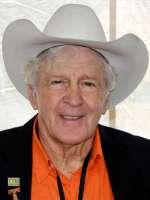Alan Sharp is a Director, Scriptwriter and Producer British born on 12 january 1934

Alan Sharp (January 12, 1934 – February 8, 2013) was a Scottish novelist and screenwriter. He published two novels in the 1960s, and subsequently wrote the screenplays for about twenty films, mostly produced in the United States.
Sharp was raised in Greenock, Scotland, the son of a single mother, and he was adopted at the age of six weeks by Margaret and Joseph Sharp, a shipyard worker. His adoptive parents belonged to a Salvation Army church. Alan left school at 14 to apprentice in the yards, the first of a long series of odd jobs he held prior to his national military service and marriage. Eventually he married four times. He ultimately relocated to London with the intention of becoming a writer. One of his screenplays was broadcast on British television in 1963, and his play A Knight in Tarnished Armour was broadcast in 1965. His first novel, A Green Tree in Gedde, was published in 1965 to acclaim and won the 1967 Scottish Arts Council Award. It was the first part of a proposed trilogy, and Sharp published the second novel, The Wind Shifts, in 1967. The third novel, which had the working title The Apple Pickers, was left incomplete when Sharp emigrated to Hollywood and focused on screenwriting.
In the 1970s, six of Sharp's screenplays became high-profile Hollywood feature films, most of them dealing with quintessentially American themes and characters. Walter Chaw writes of Sharp's screenplays from this period, "On the strength of his scripts for The Hired Hand, Ulzana's Raid, and Night Moves, Scottish novelist Alan Sharp seems well at home with the better-known, more highly regarded writers and directors of the New American Cinema. Sharp's screenplays are marked by a narrative complexity and situations gravid with implication and doom." Trevor Johnston had written recently, "There’s an argument to suggest that a certain seventysomething Scot could well be Britain’s greatest living screenwriter. Much is made of pre-Star Wars '70s Hollywood as a kind of celluloid golden age, and Alan Sharp was there in the thick of it, working with the very best, generating the sort of track record few British screenwriters are likely to match."
David N. Meyer has incorporated an appreciation of Sharp's writing in his review of Night Moves (directed by Arthur Penn-1975). Following a description of an important seduction scene from the film, Meyer adds: "These delicious, poisonous moments – these cookies full of arsenic – come courtesy of Alan Sharp's venomous, entrapping, perfectly circular screenplay. It's hard not to regard him – rather than Penn – as the engine of Night Moves' enduring power. Sharp had an unbroken forty year career writing features and television."
Since the 1980s, most of Sharp's screenplays had been for American television productions. His 1993 television screenplay (with Walter Klenhard) for The Last Hit was nominated for the Edgar Allan Poe Award (best TV feature or miniseries). His feature film projects included The Osterman Weekend (Sam Peckinpah's swan song-1982), Rob Roy (1995), and Dean Spanley (2008). Quentin Curtis called the screenplay for Rob Roy "one of the best screenplays in the last decade".
The actress Rudi Davies is the daughter of Sharp and novelist Beryl Bainbridge, who used Sharp as the inspiration for the main character in the novel Sweet William (1975). Sharp was also the inspiration for a character in one of Brian Pendreigh's short stories.
A second daughter, Rachel Minnie Sharp, also briefly an actress, was married to Luke Perry. Sharp is survived by his fourth wife, Harriet Sharp, and a total of six children, two stepsons and 14 grandchildren.
Source : Wikidata
Alan Sharp

Nationality United-kingdom
Birth 12 january 1934
Death 8 february 2013 (at 79 years) at Los Angeles (USA)
Birth 12 january 1934
Death 8 february 2013 (at 79 years) at Los Angeles (USA)
Sharp was raised in Greenock, Scotland, the son of a single mother, and he was adopted at the age of six weeks by Margaret and Joseph Sharp, a shipyard worker. His adoptive parents belonged to a Salvation Army church. Alan left school at 14 to apprentice in the yards, the first of a long series of odd jobs he held prior to his national military service and marriage. Eventually he married four times. He ultimately relocated to London with the intention of becoming a writer. One of his screenplays was broadcast on British television in 1963, and his play A Knight in Tarnished Armour was broadcast in 1965. His first novel, A Green Tree in Gedde, was published in 1965 to acclaim and won the 1967 Scottish Arts Council Award. It was the first part of a proposed trilogy, and Sharp published the second novel, The Wind Shifts, in 1967. The third novel, which had the working title The Apple Pickers, was left incomplete when Sharp emigrated to Hollywood and focused on screenwriting.
In the 1970s, six of Sharp's screenplays became high-profile Hollywood feature films, most of them dealing with quintessentially American themes and characters. Walter Chaw writes of Sharp's screenplays from this period, "On the strength of his scripts for The Hired Hand, Ulzana's Raid, and Night Moves, Scottish novelist Alan Sharp seems well at home with the better-known, more highly regarded writers and directors of the New American Cinema. Sharp's screenplays are marked by a narrative complexity and situations gravid with implication and doom." Trevor Johnston had written recently, "There’s an argument to suggest that a certain seventysomething Scot could well be Britain’s greatest living screenwriter. Much is made of pre-Star Wars '70s Hollywood as a kind of celluloid golden age, and Alan Sharp was there in the thick of it, working with the very best, generating the sort of track record few British screenwriters are likely to match."
David N. Meyer has incorporated an appreciation of Sharp's writing in his review of Night Moves (directed by Arthur Penn-1975). Following a description of an important seduction scene from the film, Meyer adds: "These delicious, poisonous moments – these cookies full of arsenic – come courtesy of Alan Sharp's venomous, entrapping, perfectly circular screenplay. It's hard not to regard him – rather than Penn – as the engine of Night Moves' enduring power. Sharp had an unbroken forty year career writing features and television."
Since the 1980s, most of Sharp's screenplays had been for American television productions. His 1993 television screenplay (with Walter Klenhard) for The Last Hit was nominated for the Edgar Allan Poe Award (best TV feature or miniseries). His feature film projects included The Osterman Weekend (Sam Peckinpah's swan song-1982), Rob Roy (1995), and Dean Spanley (2008). Quentin Curtis called the screenplay for Rob Roy "one of the best screenplays in the last decade".
The actress Rudi Davies is the daughter of Sharp and novelist Beryl Bainbridge, who used Sharp as the inspiration for the main character in the novel Sweet William (1975). Sharp was also the inspiration for a character in one of Brian Pendreigh's short stories.
A second daughter, Rachel Minnie Sharp, also briefly an actress, was married to Luke Perry. Sharp is survived by his fourth wife, Harriet Sharp, and a total of six children, two stepsons and 14 grandchildren.
Usually with
Filmography of Alan Sharp (16 films)
Director

Little Treasure (1985)
, 1h35Directed by Alan Sharp
Origin USA
Genres Drama, Comedy, Action, Romance
Actors Margot Kidder, Ted Danson, Burt Lancaster, John Pearce, Bill Zuckert, Lupe Ontiveros
Rating50%





Margot Kidder plays Margo, a stripper searching for her estranged, bank robber father (Burt Lancaster) in a remote part of Mexico. Along the way, Margo meets an American ex-pat drifter (Ted Danson), and together they search for her missing father and eventually his lost, buried fortune.
Scriptwriter
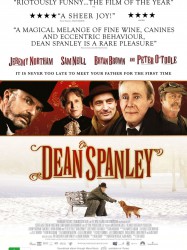
Dean Spanley (2008)
, 1h40Genres Drama, Comedy, Comedy-drama, Fantasy, Adventure
Themes Films about religion
Actors Jeremy Northam, Peter O'Toole, Sam Neill, Bryan Brown, Judy Parfitt, Dudley Sutton
Rating71%





The screenplay is an adaptation of fantasy author Lord Dunsany's My Talks with Dean Spanley, a 14-chapter novella published in 1936. It is set in Edwardian England.

Avenger (2006)
, 1h32Directed by Robert Markowitz
Origin USA
Genres Thriller, Action
Actors Sam Elliott, Timothy Hutton, James Cromwell, David Hayman, William Hope, Lucy Russell
Roles Teleplay
Rating56%





A CIA agent steps in to stop a former special forces operative on a for-hire mission that poses a global threat.

Reversible Errors (2004)
, 2h55Origin USA
Genres Drama, Thriller, Crime
Actors William H. Macy, Tom Selleck, Monica Potter, Felicity Huffman, James Rebhorn, Glenn Plummer
Roles Teleplay
Rating62%





A young woman and two other people are killed in a Kindle County local bar. Experienced detective sergeant Larry Starczek (Tom Selleck) begins investigation on the murders. Soon everything points to the small time thief Squirell. Larry arrests him and makes the thief confess. After a short trial Squirrel goes to the prison where he'll be executed.
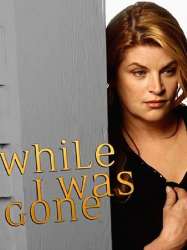
While I Was Gone (2004)
, 2hOrigin USA
Genres Drama
Actors Kirstie Alley, Bill Smitrovich, Peter Horton, Tyler Jeffrey Hynes, Janaya Stephens, Kim Poirier
Roles Teleplay
Rating49%





Jo, vétérinaire, est l'épouse d'un pasteur depuis de nombreuses années. Mais peu à peu, l'amour a laissé place à la routine. Jusqu'au jour où, dans le cadre de son travail, Jo tombe sur Eli, son amour de jeunesse. Des sentiments enfouis refont surface, obligeant la jeune femme à reconsidérer sa vie...

Lathe of Heaven (2002)
, 1h31Directed by Philip Haas
Origin USA
Genres Drama, Science fiction, Thriller, Fantasy
Themes Films based on science fiction novels
Actors James Caan, Lukas Haas, David Strathairn, Lisa Bonet, Sheila McCarthy, Serge Houde
Roles Teleplay
Rating58%





Lathe of Heaven stars James Caan, Lukas Haas, and Lisa Bonet. Unlike the 1980 adaptation, it discards a significant portion of the plot, some minor characters, and much of the philosophical underpinnings of the book.

Rob Roy (1995)
, 2h19Directed by Michael Caton-Jones
Origin USA
Genres Drama, War, Swashbuckler, Action, Adventure, Historical
Actors Liam Neeson, Jessica Lange, John Hurt, Tim Roth, Eric Stoltz, Brian Cox
Rating68%





In Scotland, 1713, Rob Roy MacGregor (Liam Neeson) is the Chief of Clan MacGregor. By selling the Lowland gentry protection against cattle rustling, he barely manages to feed his people. Longing to alleviate their poverty, MacGregor borrows £1000 from James Graham, 1st Duke of Montrose (John Hurt), with the intent of buying and selling Highland cattle. Impoverished London aristocrat Archibald Cunningham (Tim Roth) has been sent to stay with Montrose, who is implied to be related to him. Cunningham's mother hopes that the cold Scottish climate will, "cool the fever in his blood". Heavily in debt, Cunningham learns about the loan from Montrose's factor, Killearn (Brian Cox), who has been charged with looking after him. Killearn first converts the credit to cash without the knowledge of Montrose or MacGregor.
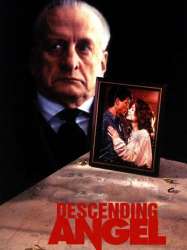
Descending Angel (1990)
, 1h38Directed by Jeremy Kagan
Origin USA
Genres Drama, Thriller
Actors George C. Scott, Diane Lane, Eric Roberts, Ken Jenkins, Mark Margolis, Richard Jenkins
Roles Teleplay
Rating59%





A recently engaged man (Roberts) comes to visit his fiancee (Lane)'s future father-in-law (Scott) and gets to know him better, when he unearths clues that the man may have been a Nazi collaborator and mass murderer.

Little Treasure (1985)
, 1h35Directed by Alan Sharp
Origin USA
Genres Drama, Comedy, Action, Romance
Actors Margot Kidder, Ted Danson, Burt Lancaster, John Pearce, Bill Zuckert, Lupe Ontiveros
Roles Writer
Rating50%





Margot Kidder plays Margo, a stripper searching for her estranged, bank robber father (Burt Lancaster) in a remote part of Mexico. Along the way, Margo meets an American ex-pat drifter (Ted Danson), and together they search for her missing father and eventually his lost, buried fortune.

The Osterman Weekend (1983)
, 1h43Directed by Sam Peckinpah, Rodney Amateau
Origin USA
Genres Drama, Thriller, Action, Adventure, Spy
Themes Spy films, Political films
Actors Rutger Hauer, John Hurt, Dennis Hopper, Craig T. Nelson, Meg Foster, Burt Lancaster
Rating57%





CIA director Maxwell Danforth (Lancaster) watches a filmed recording of agent Laurence Fassett (Hurt) and his wife making love. When Fassett goes into the bathroom to take a shower, two assassins enter the bedroom and kill his wife (Merete Van Kamp) by holding her down and injecting poison into her nostril with a syringe. It is suggested that the woman was an innocent bystander sacrificed by Danforth as collateral damage. Fassett, unaware of his employer's involvement, goes almost insane with grief and rage and begins to hunt down the assassins, eventually uncovering a Soviet spy network known as Omega.

Coming Out of the Ice (1982)
, 1h44Directed by Waris Hussein
Origin USA
Genres Drama, Biography
Actors John Savage, Willie Nelson, Francesca Annis, Ben Cross, Frank Windsor, Peter Vaughan
Roles Writer
Rating64%





Emmené en 1931 par son père depuis Detroit où ils vivaient en immigrés vers l'URSS pour soutenir l'industrie soviétique, Victor, athlète remarqué, refuse la citoyenneté russe et se fait persécuter par les autorités staliniennes. Il sortira de torture et de déportation après 45 ans de présence en territoire soviétique.

Damnation Alley (1977)
, 1h31Directed by Jack Smight
Origin USA
Genres Science fiction, Fantastic, Action, Adventure
Themes La fin du monde, Post-apocalyptic films, Films about religion, Transport films, Films based on science fiction novels, Films set in the future, Political films, Road movies, Dystopian films, Children's films, Arme nucléaire, Disaster films, American disaster films
Actors Jan-Michael Vincent, George Peppard, Dominique Sanda, Paul Winfield, Jackie Earle Haley, Robert Donner
Rating52%





First Lieutenant Jake Tanner (Jan-Michael Vincent) shares ICBM silo duty at an American air force missile base in the Californian desert with Major Eugene "Sam" Denton (George Peppard), who is requesting not to work with him. On their way to duty, Denton talks to Airman Tom Keegan (Paul Winfield), an aspiring artist. When the United States detects incoming nuclear missiles from the Soviet Union, Tanner and Denton launch part of the retaliatory strike. The United States is hit hard, although it manages to intercept 40% of Soviet missiles.
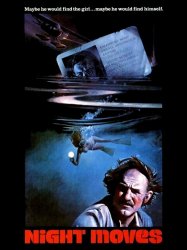
Night Moves (1975)
, 1h38Directed by Arthur Penn
Origin USA
Genres Drama, Thriller, Crime
Actors Gene Hackman, Jennifer Warren, Susan Clark, Melanie Griffith, John Crawford, Harris Yulin
Roles Writer
Rating70%





Harry Moseby is a retired professional football player now working as a private investigator in Los Angeles. He discovers that his wife Ellen (Susan Clark) is having an affair with a crippled man named Marty Heller (Harris Yulin).

Billy Two Hats (1974)
, 1h39Directed by Ted Kotcheff
Origin USA
Genres Western
Actors Gregory Peck, Jack Warden, David Huddleston, Desi Arnaz Jr., John Pearce, Vic Armstrong
Roles Writer
Rating62%





Following a bank robbery in the American west, the partner of Scottish outlaw Arch Deans is killed and his young Indian half breed friend Billy Two Hats is captured.

Ulzana's Raid (1972)
, 1h45Directed by Robert Aldrich
Origin USA
Genres Drama, Action, Adventure, Western
Actors Burt Lancaster, Bruce Davison, Richard Jaeckel, Karl Swenson, Lloyd Bochner, Joaquín Martínez
Roles Writer
Rating69%





Following mistreatment by agency authorities, Ulzana breaks out of the San Carlos Indian Reservation with a small war party. Soon news reaches the local military commander, who sends riders to alert local homesteads. Both troopers are separately ambushed; one is dragged away while the other shoots the settler woman he is escorting and then himself. The warriors play catch with his heart. The woman's husband, who stayed behind to protect his farm, is captured and tortured to death. Army scout MacIntosh (Lancaster) is given the job of finding Ulzana (Martinez) with a few dozen soldiers led by an inexperienced lieutenant, Garnett DeBuin (Davison). The small cavalry column includes a veteran sergeant (Jaeckel) and Apache scout Ke-Ni-Tay (Luke). Ke-Ni-Tay knows Ulzana, as their wives are sisters.
 Connection
Connection

